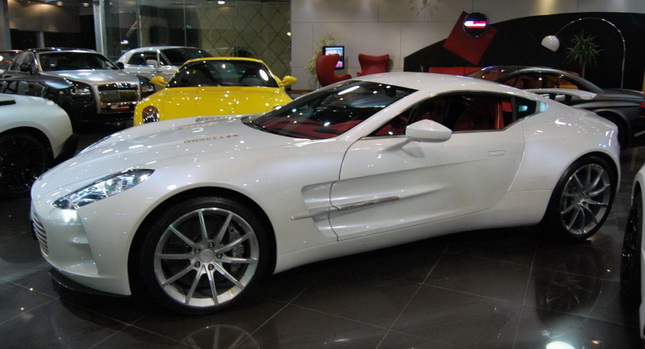When oil prices go up, car sales, especially those of gas-guzzling models, go down. There’s one place, though, where the exact opposite is happening right now: it’s the Middle East where new car sales are booming.
Sure, many countries in the region, like Bahrain and Syria, are facing severe political turmoil, but on the other hand, since oil prices are on the rise with crude oil having gained 6.7 percent over the last 12 months, revenues of local governments have increased accordingly.
Said governments, wanting to avoid uprisings, are injecting cash into the economy increasing their citizens’ income.
Abdullah Saeed, who works at an investment firm in Saudi Arabia and was checking out an Audi dealership in Riyadh for a replacement to his Q7 told Bloomberg News: “Most people, when an increase in their income comes, they spend it on buying cars”.
Automotive analyst IHS expects sales of cars and light commercial vehicles in the Gulf region to increase by 6.6 percent, to 1.28 million units, this year.
The world’s number one oil exporter, Saudi Arabia, is unsurprisingly the biggest market in the region, accounting for 50 percent of total sales. Saudi King Abdullah promised to spend an extra US$130 billion (!) in teaching and health care, creating 66,000 new jobs.
Likewise, the U.A.E. government will allocate US$1.9 billion for housing in Dubai in order “to maintain social stability” and Qatar raised government employees’ salaries by 60 percent. If you think that’s generous, then consider that the army and police received double the raise: yep, that’s 120 percent more.
Automakers have therefore found their new promised land after a slowing down Chinese market and a struggling European market that’s expected to post a sales drop for the fifth year in a row.
It’s not just luxury brands like Porsche or Rolls-Royce that are profiting from this situation. Mainstream manufacturers are also rushing into the Middle East. That’s because, as Ford’s director of sales in the Middle East Hussein Murad said, “The middle class are more and more empowered now.”
Ford invested US$53 million in Dubai last year and will open six new dealerships in Saudi Arabia in 2012. Simon Firth, managing director of Toyota’s distributor in the U.A.E., said that the Japanese carmaker, which recently introduced the Yaris and the Camry to the local market, would open two new showrooms this year.
Meanwhile, it’s still business as always for the elite: Lamborghini’s CEO Stephan Winkelmann said that the Aventador already has a two-year waiting list.




